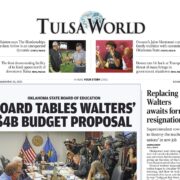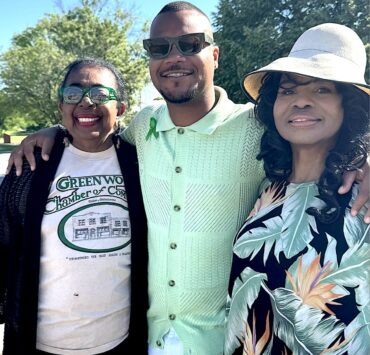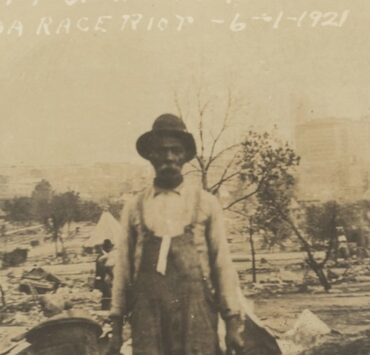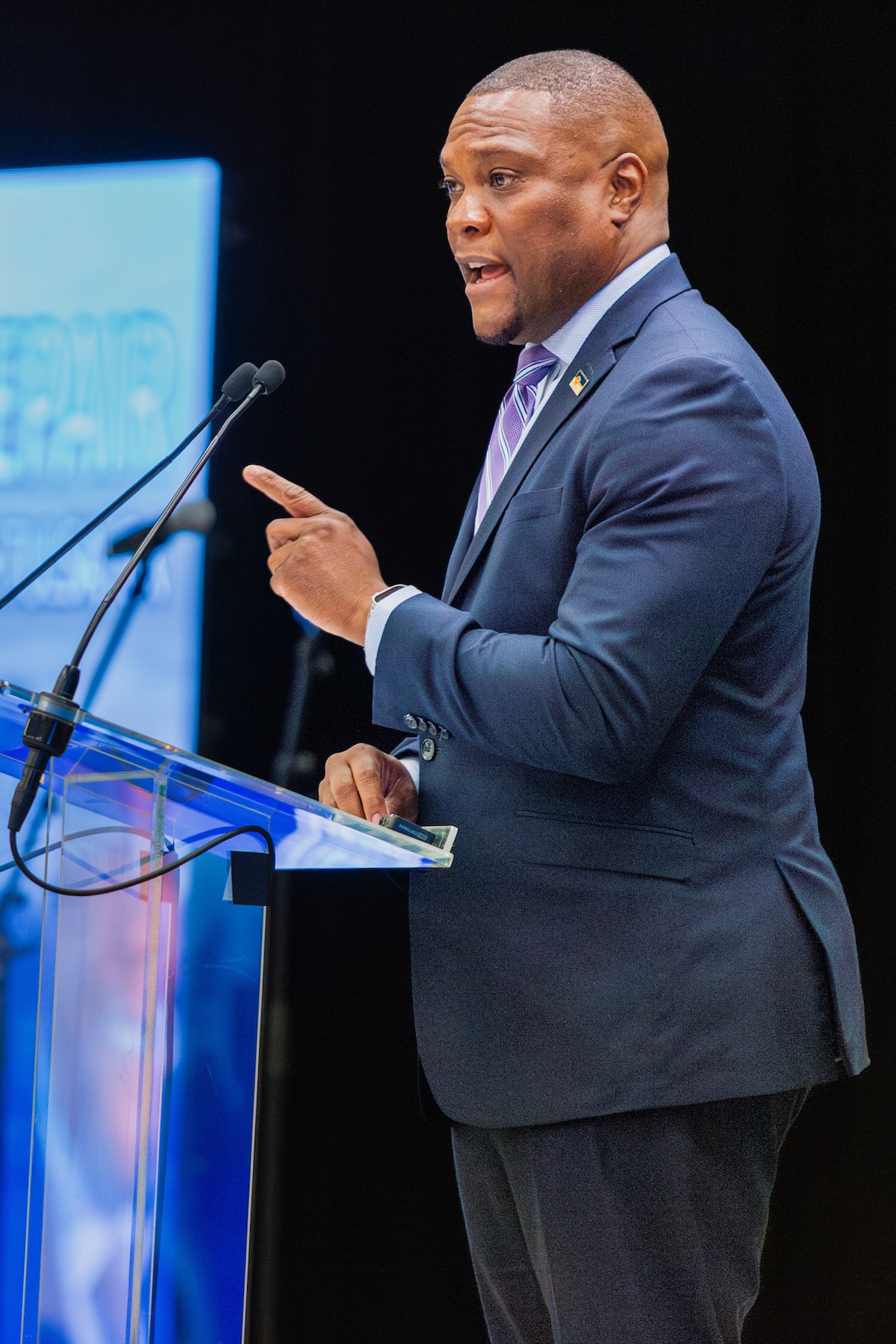
LOCAL
Kimberly Marsh, The Oklahoma Eagle
Monroe Nichols, Tulsa Okla. Mayor, announcing a sweeping plan to address the tragedy that the bloody 1921 Tulsa Race Massacre wreaked on thousands of Black Tulsans and their descendants. Photos, Basil Childers
City of Tulsa Mayor Monroe Nichols today announced a sweeping plan to address the tragedy that the bloody 1921 Tulsa Race Massacre wreaked on thousands of Black Tulsans and their descendants.
Nichols unveiled a campaign to secure $105 million in funding over the coming year for a private charitable trust, The Greenwood Trust, that will be used to fund housing, educational opportunities, and other benefits to Tulsa’s Black community. The goal is to have the fund in place by the 105th anniversary of the Tulsa Race Massacre.
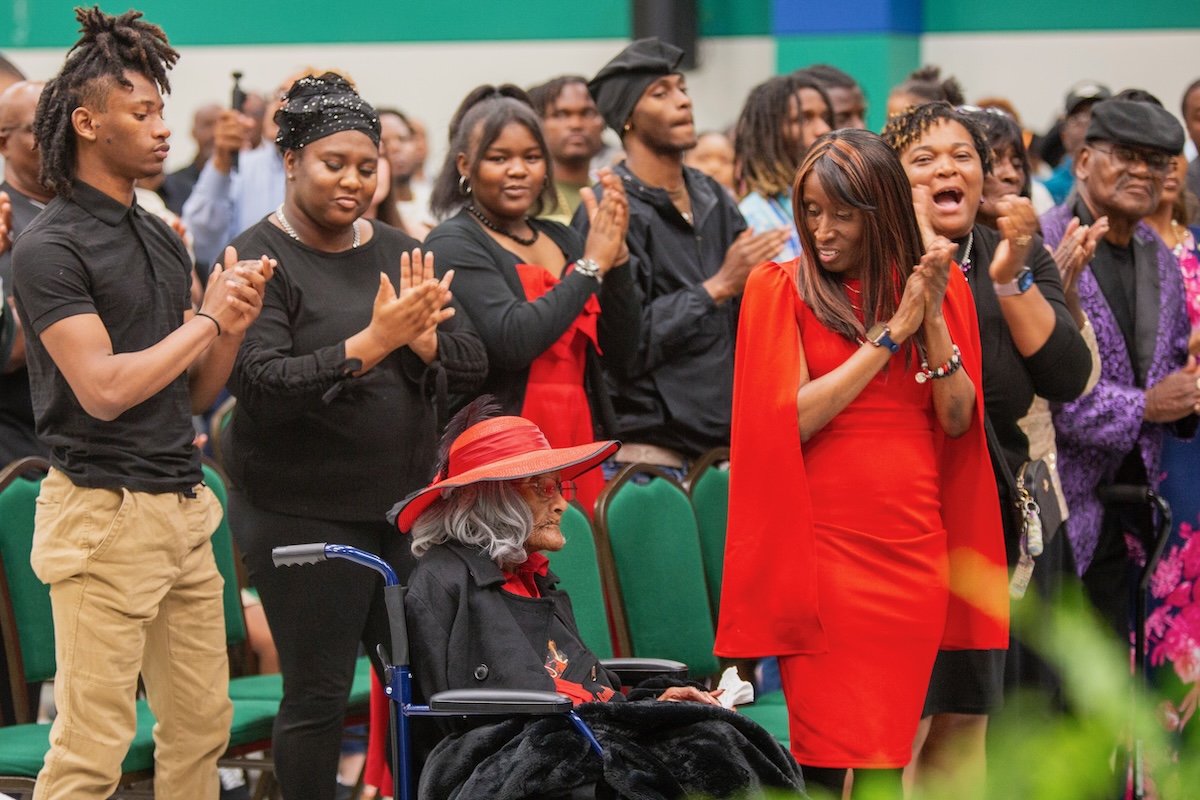
The Trust, designed to help remedy a century of disparities and harm in Tulsa’s Black community, is “a critical step to unify Tulsans and heal the wounds that for so long prevented generations of our neighbors from being able to recover from the Race Massacre,” said Nichols.
The setting of the presentation – held on the first Tulsa Race Massacre Observance Day, June 1, 2025 – was poignant. Nichols gave it at the Greenwood Cultural Center, a beloved gathering spot for Black Tulsans located in the midst of historical Greenwood – the community that perpetrators of the Massacre reduced nearly to ashes. Mother Viola Fletcher and Mother Lessie Benningfield Randle, the two sole survivors of the Massacre sat before him. Mother Fletcher is 111 and Mother Randle 110.
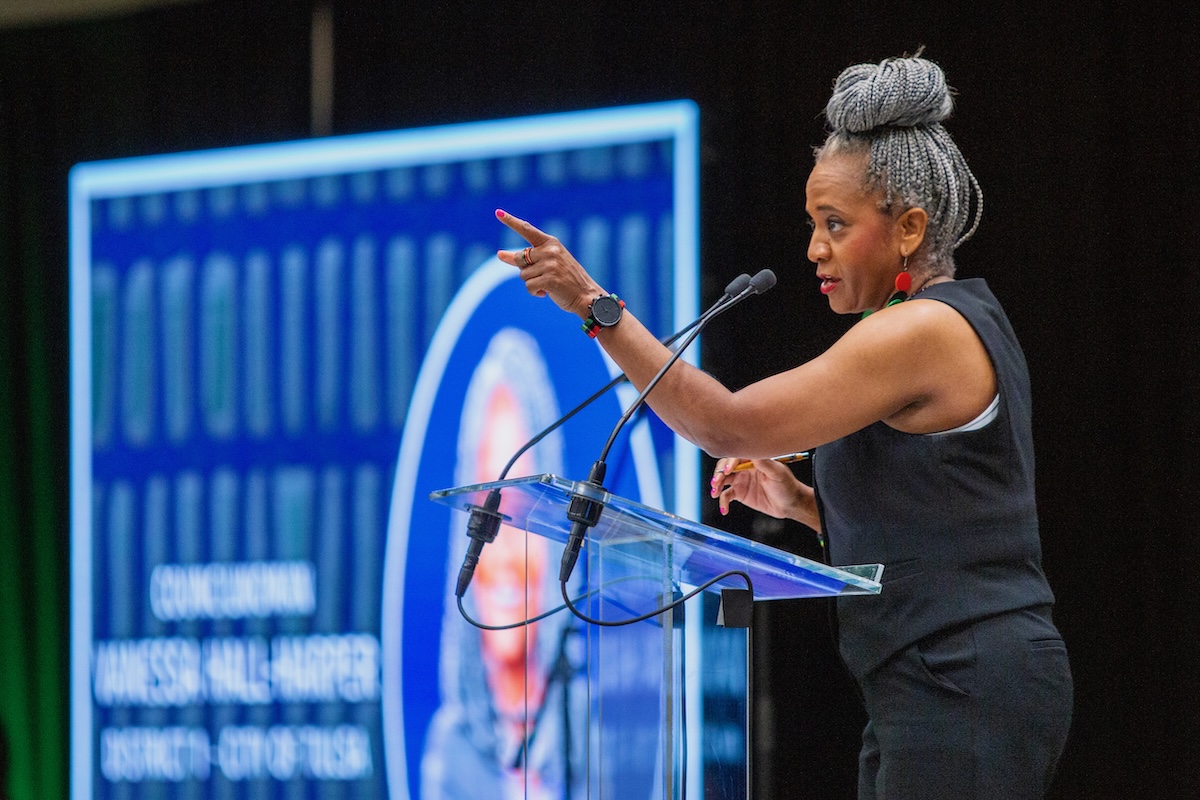
Nichols asked the packed audience to dream about what Tulsa would be like if the Massacre had never happened.
“Imagine the trust and faith we would have built in each other over these last 104 years. There is not one Tulsan, no matter their skin color, who wouldn’t be better off today had the Massacre not happened, or if generations before us would have done the hard work to restore what was lost,” Nichols said. His speech roused people to their feet for about a dozen standing ovations.
But the 1921 Tulsa Race Massacre did happen. Instead of the continued flourishing city that was built by two races, with one built from the ground up under the weight of Jim Crow restrictions and the other built on oil and operating from a place of bigotry and power, Greenwood was destroyed. Then its history was nearly buried with the dead.
“The Massacre was hidden from history books, only to be followed by the intentional actions of redlining, a highway built to choke off economic vitality, and the perpetual underinvestment from local, state, and federal governments,” Nichols said.
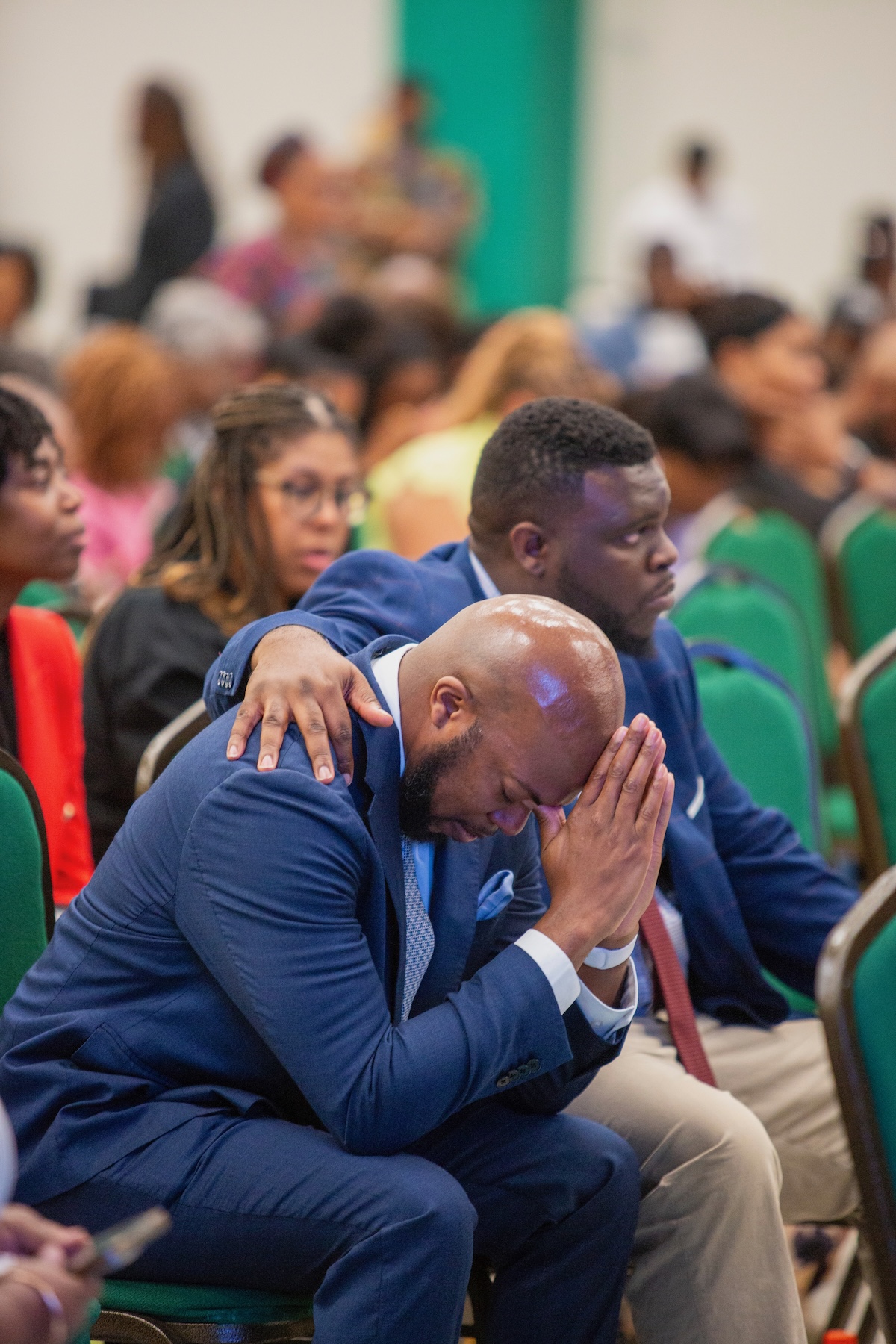
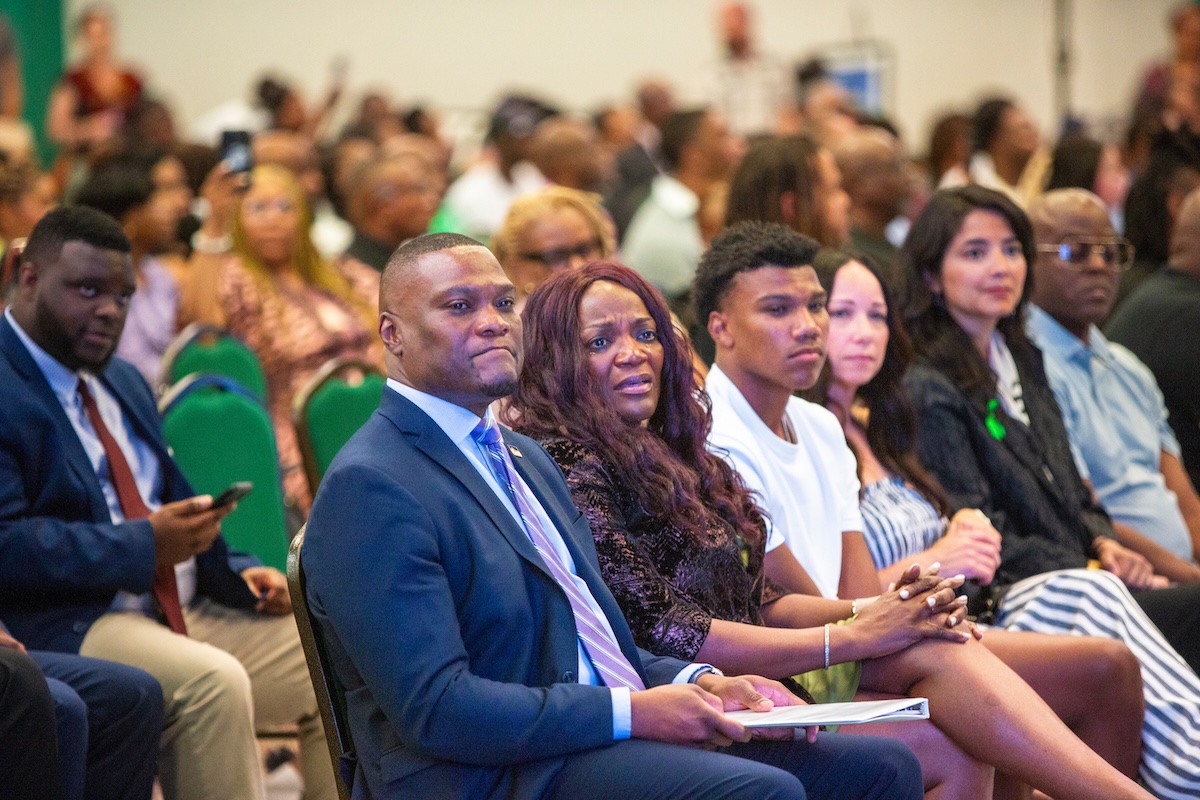
And yet, through the perseverance of survivors who exceeded the age of 100 and historians such as Eddie Faye Gates, the history was never erased, he added.
Praising their pursuit of justice, Nichols honored the two survivors as the “keepers of Greenwood,” for inspiring a community that elected its first Black mayor in 2024 and is on the road to repair and restoration.
Nichols said that he and other Greenwood advocates are ready to move forward with investments that could be transformative for the entire city of Tulsa.
“We’ve worked to recognize and remember, but now it’s time to take the next big steps, to restore,” Nichols said.
On the stage with Nichols and in front was a group of leaders who have worked tirelessly to keep the hope of Greenwood alive. They celebrated a plan committed to justice, opportunity, and dignity.
“It is my belief that we can no longer wait and ignore these powerful voices for unity of progress,” he said.
After decades of calls for reparations through legislative efforts and lawsuits, a Department of Justice report finally revealed what Black Tulsans had long known to be true in their hearts. The 1921 Race Massacre was more than an angry white mob seeking vengeance on Dick Roland.
The accusations around Roland, a young Black man accused of attacking a white woman in a department store elevator, sparked three days of violence that destroyed homes, property, and prosperity that city officials now acknowledge has never been restored. In a 2025 department of Justice investigation, thousands of documents reviewed showed that the riot began as a conflict over Roland’s arrest, but overnight it turned into a military-style, airborne firebomb attack on the district.
The Greenwood Trust announcement highlighted several days of worship, remembrance ceremonies, thought-provoking talks, listening, and healing sessions as part of the Greenwood LegacyFest. The mayor’s announcement set the stage for Tulsans to pivot to action mode with groundbreaking programs and commitments to support one another.
“The Greenwood Trust is a bridge that connects what we as a community can bring to the table and what the community needs. As we seek to make this framework a reality, I am eager to work alongside my fellow Tulsans and partners across the country to create a fundamental shift in how we further establish generational wealth, housing opportunities, and repair for so many Tulsans.”
The DOJ concluded, at long last, that city officials and leaders of that era were responsible for the attacks on the morning of March 31, including firebombs dropped from airplanes that destroyed Black Wall Street. By June 1, the district that Black Tulsans had united to create to provide businesses and services they were denied because of Jim Crow laws and racial discrimination had been completely destroyed.
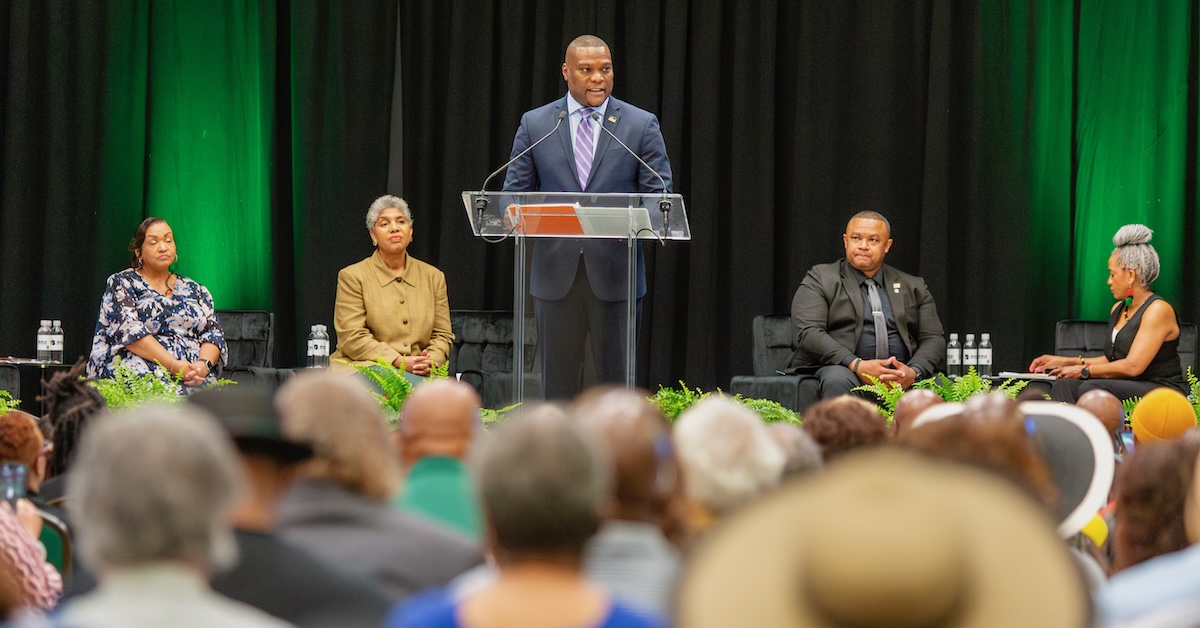
The Greenwood Trust
The Greenwood Trust will be led by an executive director, funded by private sources, and overseen by a board of trustees and advisors to manage and operate the trust’s daily functions. The first operational year will serve as a planning year to create programs and hire staff.
It will include:
- A $24 million Housing Fund to benefit residents of Greenwood and north Tulsa. It will assist in furthering the implementation of community recommendations centered on housing and homeownership benefits for survivors of the Race Massacre and their descendants.
- A $60 million cultural preservation fund to address blight and help implement “certain aspects of the Kirkpatrick Heights Greenwood Master Plan,” a district north of downtown that has sat vacant and undeveloped for decades.
- A $21 million Legacy Fund to develop trust-owned land and acquisition for land for the benefit of Race Massacre survivors and descendants. A portion of the scholarships will be used to put children on a positive educational path and to support small businesses and organizational grants.
In a news release, Nichols also listed other actions he took upon taking office in December 2024, including the creation of Tulsa Race Massacre Observance Day on June 1, an annual day for Tulsans to reflect on and engage with the community around its history, celebrate present achievements, and look to the future. More than 45,000 historical records regarding the Race Massacre were publicly released and are available at cityoftulsa.org/roadtorepair.
Nichols also reaffirmed the City’s commitment to continue the 1921 Graves Investigation along with the Community Genealogy Project where Tulsa residents are assisted in tracing their family history, and for a new exhibit at the Greenwood Cultural Center, all as part of the Emmit Till Grant. The third round of Community Engagement Genealogy Workshops will be held from June 20 to June 22, 2025, at the 36th Street North Event Center, 1125 E. 36th St. N. For more information, see www.greenwoodculturalcenter.org/genealogy-workshop.
Mayor Nichols included nearly $1 million in his proposed Fiscal Year 2026 budget for excavation work at Oaklawn Cemetery following archeological expert recommendations. More details will be released in the coming weeks, he said. The Tulsa City Council is currently holding budget meetings and is expected to approve a final budget by June 23.







